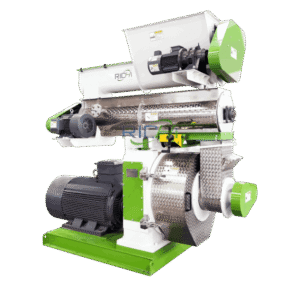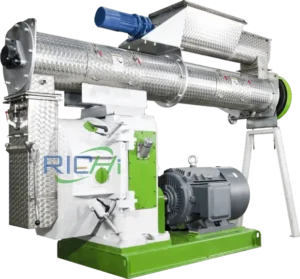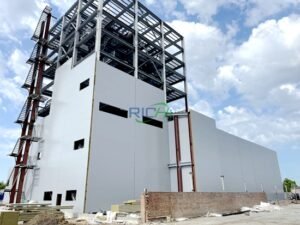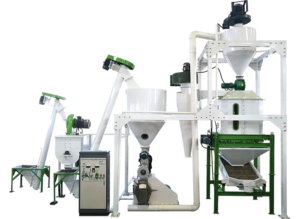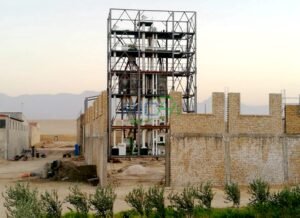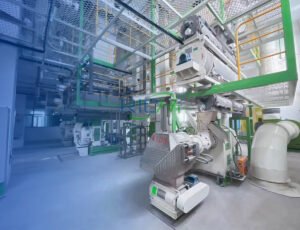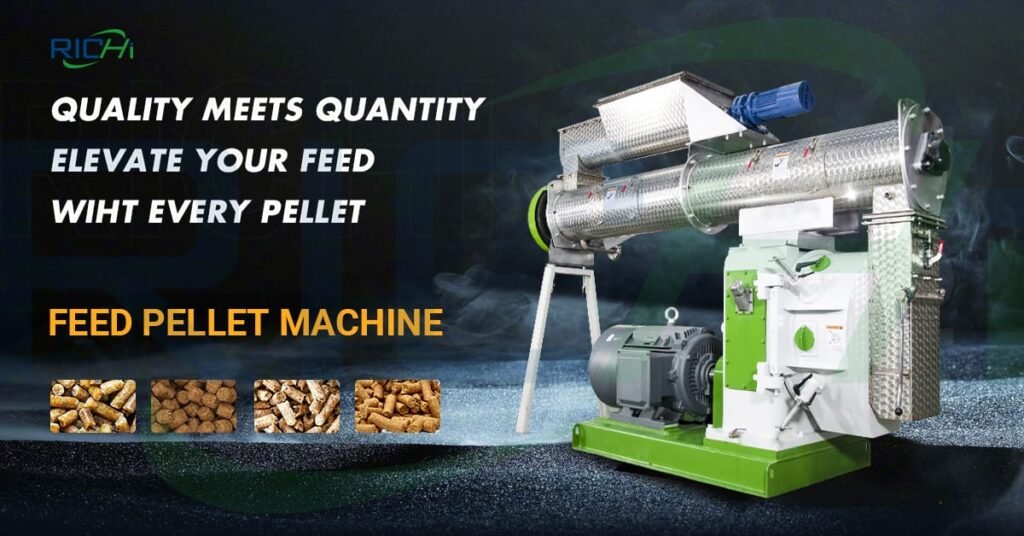
In the dynamic world of animal farming and livestock production, ensuring a consistent supply of high-quality and nutritionally balanced feed is paramount for maintaining the health, growth, and productivity of animals. To meet this crucial need, animal feed pellet presses have emerged as essential equipment, offering a comprehensive solution for efficient and sustainable feed production.Animal feed pellet presses are specialized machines designed to transform loose feed ingredients into dense, cylindrical pellets, offering numerous advantages over traditional feed forms.
These pellets are not only convenient for handling, storage, and transportation but also provide consistent nutrient profiles, improved feed conversion rates, and reduced waste.The versatility of animal feed pellet presses extends across various sectors of the animal farming industry, catering to the diverse needs of livestock, poultry, aquaculture, and even pet food production. In this article, we’ll explore the wide-ranging applications of these essential machines, highlighting their significance in supporting sustainable and efficient animal production.
Livestock Feed Production
One of the primary applications of animal feed pellet presses is in the production of feed for livestock, such as cattle, sheep, goats, and pigs. These machines play a crucial role in ensuring that livestock receive a balanced and nutritious diet, tailored to their specific nutritional requirements and production stages (e.g., growth, reproduction, lactation).Pellet presses can handle a wide range of feedstocks, including grains, oilseeds, protein sources, and various additives, allowing for the formulation of customized feed blends. The resulting pellets offer several advantages over loose feed, such as improved feed conversion efficiency, reduced feed wastage, and better digestibility for the animals.
Poultry Feed Production
The poultry industry is another significant beneficiary of animal feed pellet presses. These machines are essential for producing high-quality feed pellets for broilers, layers, and other poultry species, ensuring optimal growth, egg production, and overall productivity.Pellet presses can incorporate a variety of ingredients, including corn, soybean meal, wheat, and various vitamins and minerals, to create balanced and nutrient-dense feed formulations. The pelletized form of the feed not only improves feed intake and digestibility but also reduces feed wastage and dust generation, contributing to better flock health and performance.
Aquaculture Feed Production
As the demand for sustainable and efficient aquaculture practices continues to grow, animal feed pellet presses have become indispensable in the production of high-quality feed for various fish species. These machines can produce pellets with specific sizes, densities, and nutrient profiles tailored to the dietary requirements of different fish species and life stages.Aquaculture feed pellets are designed to maintain their integrity in water, ensuring efficient feed utilization and minimizing water pollution. Additionally, the pelletized form of the feed allows for precise feeding rates and monitoring, contributing to improved fish growth, health, and overall productivity.
Pet Food Production
Beyond livestock and aquaculture, animal feed pellet presses also play a vital role in the production of high-quality pet food. These machines can produce pellets with specific shapes, sizes, and textures suitable for different pet species, such as dogs, cats, and small animals.Pet food pellets offer several advantages, including improved palatability, digestibility, and nutrient bioavailability. Additionally, the pelletized form of the feed ensures consistent portion control, making it easier for pet owners to manage their pets’ dietary intake and maintain a healthy weight.
Research and Development
Animal feed pellet presses are also valuable tools in the research and development of new feed formulations and ingredients. Agricultural research institutions and universities can utilize these machines to conduct trials and experiments, exploring the effects of different feed compositions, processing methods, and additives on animal performance and health.By producing small batches of experimental feed pellets, researchers can evaluate the efficacy and suitability of new feed formulations before scaling up production for commercial applications. This research plays a crucial role in advancing animal nutrition and promoting sustainable and efficient animal farming practices.
Related post: https://www.richipelletmachine.com/animal-feed-pellet-mill-for-sale/
Factors Influencing the Choice of Animal Feed Pellet Presses
When selecting an animal feed pellet press, several factors must be considered to ensure optimal performance and suitability for the intended application:
- Production Capacity: The required production capacity of the pellet press should align with the scale of the animal farming operation and the anticipated demand for feed pellets.
- Feedstock Compatibility: The pellet press should be capable of handling the specific feedstocks and ingredients used in the feed formulation, considering factors such as moisture content, particle size, and density.
- Pellet Quality and Specifications: The desired pellet quality and specifications, including size, density, durability, and nutrient profile, should be carefully evaluated to meet the specific requirements of the target animal species and production stage.
- Energy Efficiency and Sustainability: Prioritizing energy-efficient and sustainable pellet presses can contribute to long-term cost savings and environmental responsibility, aligning with the principles of sustainable animal farming.
- Automation and Control Systems: Advanced automation and control systems can improve process efficiency, consistency, and quality control, reducing the risk of human error and ensuring optimal pellet production.
- Maintenance and Support: Considering the manufacturer’s reputation for quality, after-sales support, and availability of spare parts and technical assistance is crucial for ensuring the longevity and optimal performance of the pellet press.
By carefully evaluating these factors and selecting the appropriate animal feed pellet press, producers can ensure efficient and sustainable feed production, contributing to the overall health, growth, and productivity of their animals while supporting the long-term viability of their animal farming operations.

